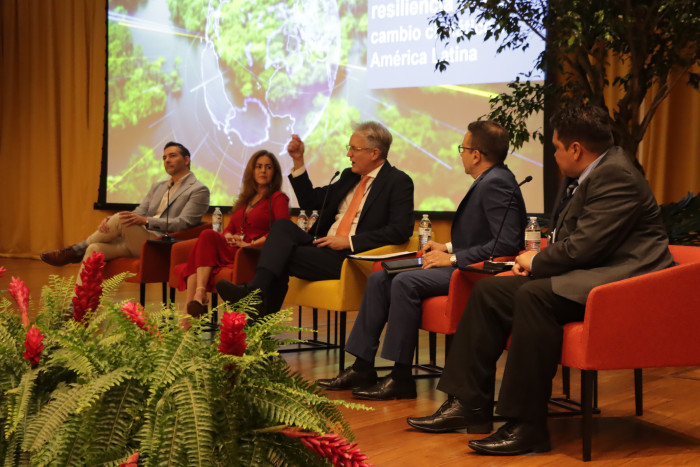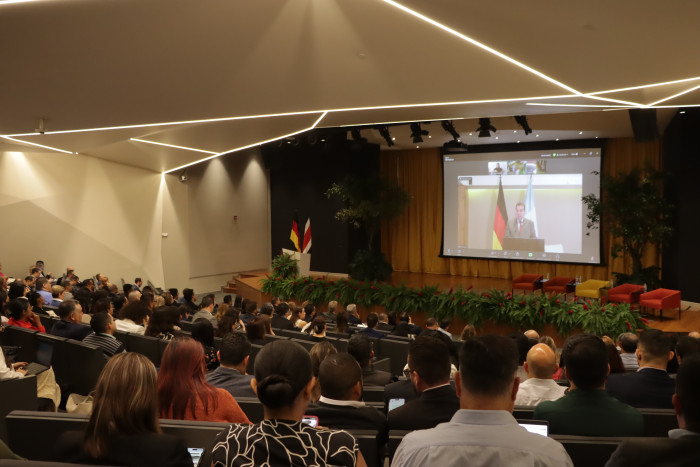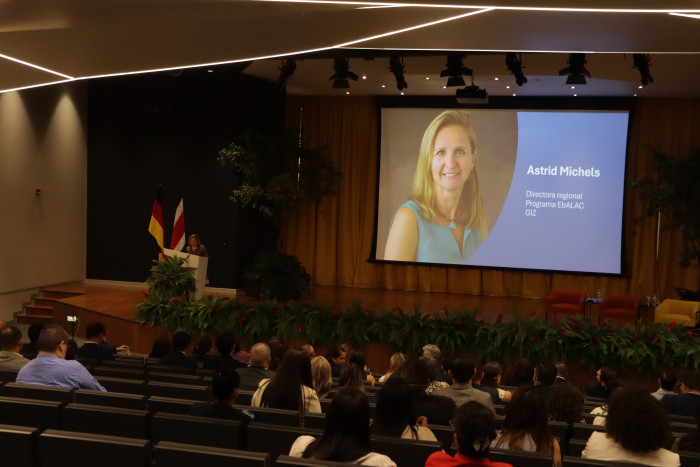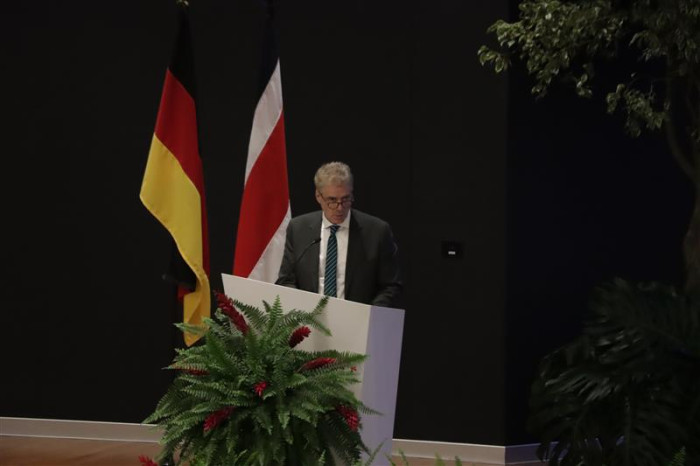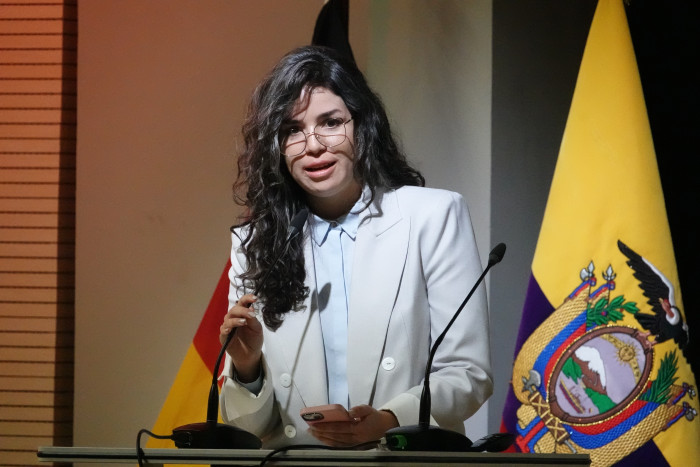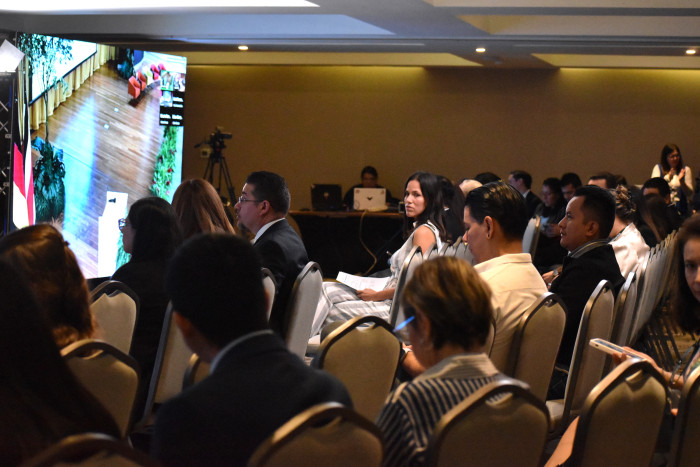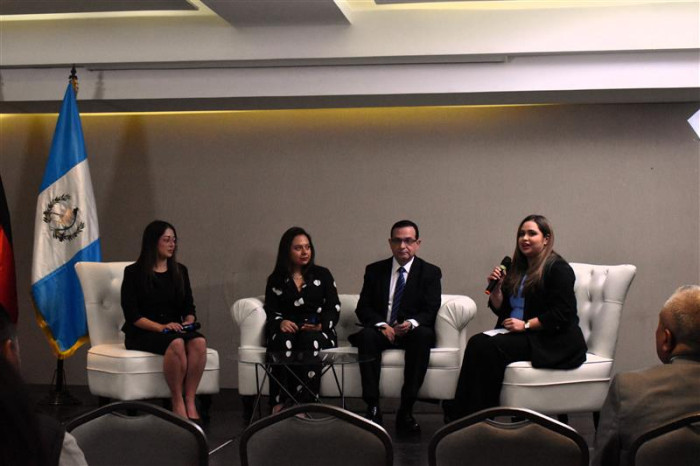E-learning Course Boosts Knowledge on Financing for Climate Change Adaptation and Resilience
Germany, Costa Rica, Guatemala, and Ecuador promote climate finance education for the finance and insurance sectors.
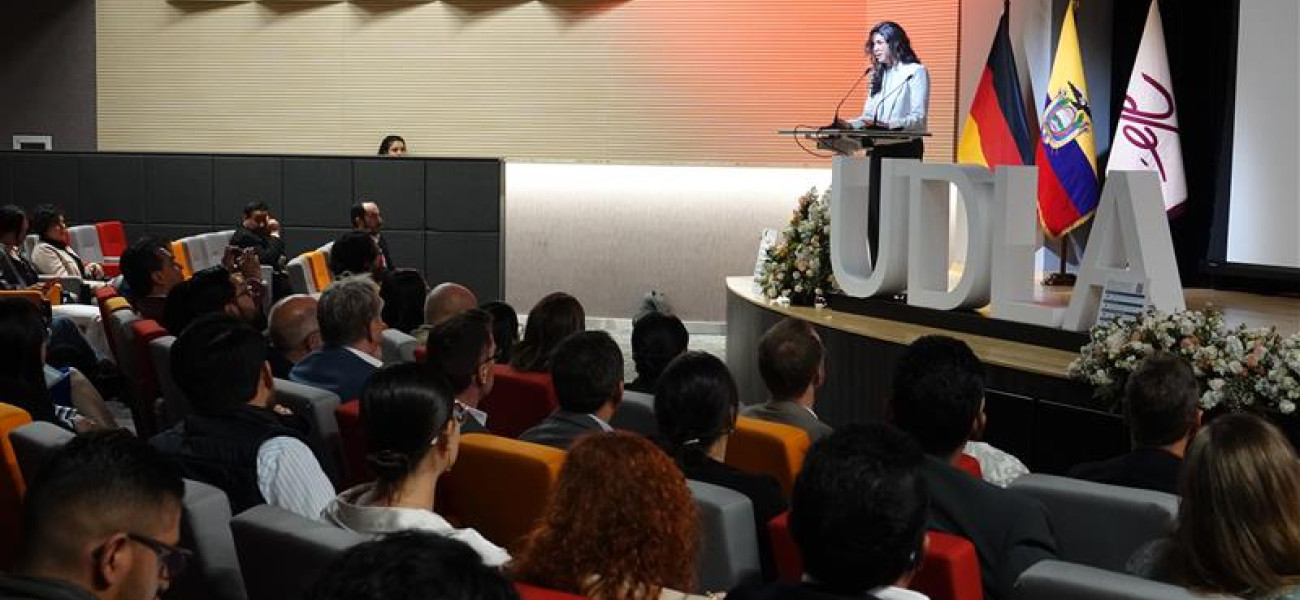
© EbA LAC
A new online course, “Financing for Adaptation and Resilience to Climate Change in Latin America,” has been launched simultaneously in Costa Rica, Guatemala, and Ecuador, with the aim of strengthening the financial and insurance sectors across Latin America by expanding innovative insurance and financing instruments that provide long-term resources to businesses and individuals in climate-vulnerable sectors.
“ The course we are launching today is a tool we are making available to sector actors to take the first step toward greater competitiveness within the climate context.
– Astrid Michels, Regional Director of the EbA LAC Program of the German Development Cooperation, GIZ ”
The course covers key concepts of climate financing and its relationship to climate change adaptation, as well as the main sources of international financing and the financial mechanisms available to the finance and insurance sectors. It also incorporates the concept of climate risk, its close connection with financial risk, and how these risks are transferred to financial and insurance institutions.
In addition, it addresses the importance of investments in climate change adaptation and biodiversity conservation through credit lines and insurance products, providing guidance for financial institutions to develop new products and showcasing the different tools currently available in the market.
“ At the Development Banking System, we are convinced that facing climate change is not only an environmental responsibility, but also an opportunity to generate transformative financial solutions. This type of training allows sector actors to better understand the risks and act with greater strategic vision. Promoting green and resilient financing is an essential part of our commitment to the sustainable development of the country.
– Marlene Villanueva, Acting Executive Director of the Development Banking System (SBD) in Costa Rica. ”
“ This is a relatively short, didactic, and engaging course. What’s new is that it uses language appropriate for the target group – the financial and insurance sector – aiming to raise awareness and foster understanding in the sector about the impact climate change has on their own business and that of their clients.
– Tomás Soley Pérez, Costa Rica’s General Superintendent of Insurance and Securities ”
“ The financial sector has shown a commitment to climate resilience, and strengthening its capabilities in this area is key to advancing toward a more aware and sustainable Ecuador. This course provides us with practical tools to better respond to the challenges of climate change, and highlights opportunities for financing. We value this important partnership with GIZ and invite more professionals to join this collective effort.
– Fernanda Gross, Executive Director of Ecuador’s Financial Cluster ”
Course participants will gain a deeper understanding of international trends and business dynamics related to climate change, learn how financial institutions can innovate and stay at the forefront in developing products that foster climate resilience – understood as the capacity to prepare for, anticipate, respond to, and recover from the adverse effects of climate change – and see how these products benefit their clients’ businesses in the long term.
“ Climate change needs to be known and understood by all sectors, including the financial sector, which plays an important role in generating financial instruments to increase climate resilience – especially in a country like Costa Rica, where there is a high frequency of hydrometeorological events. It’s also an important tool for climate empowerment and for advancing the country’s actions to comply with the Paris Agreement and our Public Policy.
– Adriana Bonilla, Director of Climate Change at Costa Rica’s Ministry of Environment and Energy (MINAE) ”
“ For financial and insurance entities, it is urgent that they understand how climate change risks affecting their clients also translate into financial risks for them. These risks must be identified, assessed, and properly managed if they want to survive and compete in current and future markets.
– Astrid Michels, Regional Director of the EbA LAC Program of the German Development Cooperation, GIZ ”
The course has two versions: a 10-hour version aimed at product developers, analysts, and executives in the financial and insurance sectors, as well as universities, other government entities, and the private sector; and a shorter two-hour version for decision-makers. Both versions are available on the INCAE Business School platform.
“ I am convinced that participating in the course will yield positive results for the population, and therefore I extend a cordial invitation to the financial and insurance sector to join in and be part of this program, which will be the key to new opportunities in the face of climate change for present and future generations.
– Héctor Espina, Superintendent of Insurance Supervision in Guatemala ”
The e-course was developed by INCAE Business School under the program “Scaling Up Ecosystem-based Adaptation Measures (EbA) in Rural Latin America (EbA LAC)” with support in Costa Rica from the General Superintendency of Financial Institutions (Sugef), the General Superintendency of Insurance (Sugese), and the Development Banking System (SBD). In Guatemala, it had the participation of the Superintendency of Banks of Guatemala, and in Ecuador, it was supported by the Superintendency of Banks (SB), the Superintendency of Popular and Solidarity Economy (SEPS), and the Superintendency of Companies, Securities, and Insurance (SUPERCIAS).
The EbA LAC program is implemented in Costa Rica in coordination with the Ministry of Environment and Energy (MINAE) and is financed by the German Federal Ministry for the Environment, Nature Conservation, Nuclear Safety and Consumer Protection (BMUKN) through its International Climate Initiative (IKI). It is implemented by GIZ as the lead agency, in partnership with IUCN (International Union for Conservation of Nature) and CATIE (Tropical Agricultural Research and Higher Education Center). The program’s goal is to increase climate change resilience for vulnerable communities and ecosystems in rural areas of Ecuador, Guatemala, and Costa Rica.
- Country: Costa Rica, Guatemala
- Project:
- Contact:
